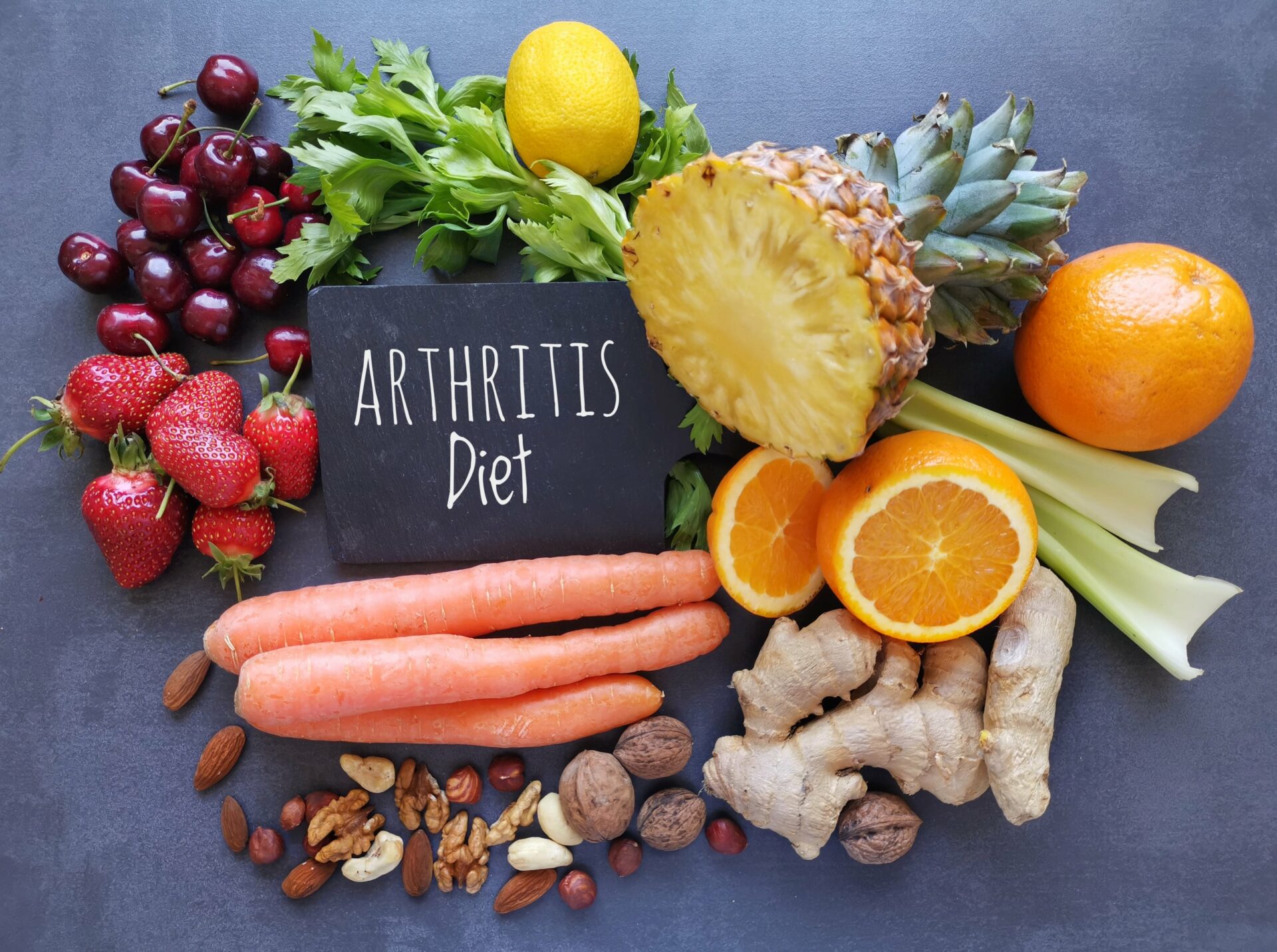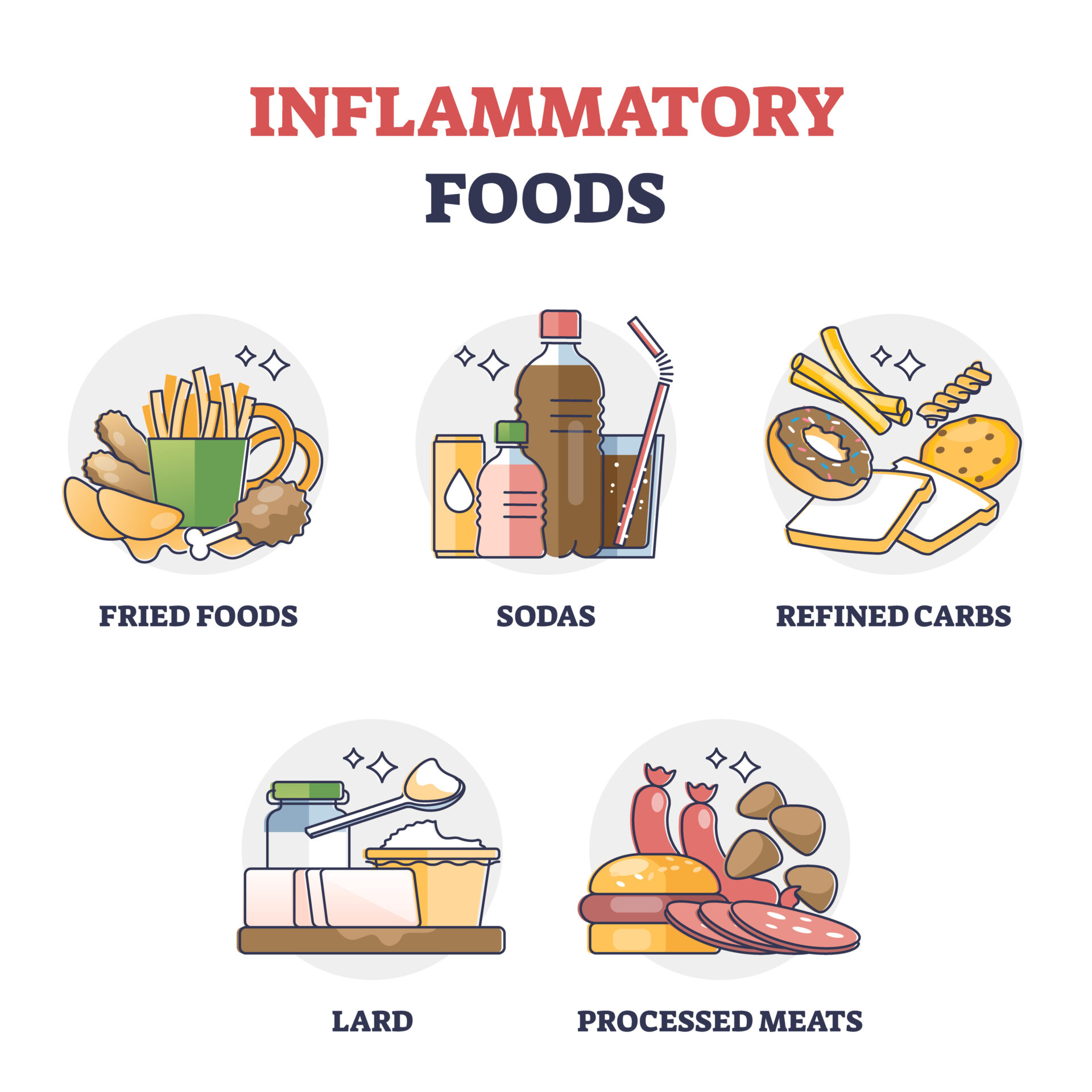Arthritis is a condition which has troubled countless people for many years. It’s a difficult condition to manage on a daily basis, and there are multiple things you can do to help you cope with it – one of them is your diet.
Today, we will discuss the effects your diet can have on arthritis, showcasing the benefits and negatives of the food you consume.
Inflammatory foods
Inflammatory foods have been linked to aggravating arthritis symptoms. These types of food contain a high level of refined sugar and saturated fat; you can find these most commonly in processed foods, fast food, and junk food. If you consume these types of foods excessively, you run the risk of triggering an inflammatory response in the body, which can worsen arthritis symptoms. The symptoms you could experience range from pain, swelling, and stiffness in the joints; each of which is difficult to manage – especially if your current arthritis is bad.
Anti-inflammatory foods
So, if inflammatory foods have a negative effect on arthritis, can anti-inflammatory foods help? They sure can! Anti-inflammatory foods contain properties that can help alleviate arthritis symptoms. Surprisingly, this is often overlooked by people who suffer from arthritis, which is why it’s important to encourage more people to consume healthier food. This includes fruit, vegetables, whole grains, lean protein, and healthy fats. Any diet that contains a high amount of these ingredients will be hugely beneficial, especially the notorious Mediterranean-style diet, which we will discuss later on.
Furthermore, omega-3 fatty acids are another type of anti-inflammatory food that can be beneficial for people with arthritis. Omega-3s are found in fatty fish such as salmon, tuna, and mackerel, as well as in walnuts, flaxseed, and chia seeds. If you can consume a good amount of these types of food then you will reduce joint pain which is caused by inflammation in the body. There are other benefits you can enjoy too such as:
- Improved joint function
- Reduce arthritis pain
- Decrease the need for medication
- Improve overall health
Each will have a significant impact on your daily life, so why not try it and see how you get on? If you’re looking for some hobbies and activities to help with your arthritis, check out one of our previous articles here.
The best diet for arthritis
If you’re suffering from arthritis, your diet plays a crucial part in the long-term future of your condition. As mentioned previously, we can’t stress enough the importance of having a healthy, balanced diet. Not only is it good for your overall health, but it can have a positive impact on arthritis. In our previous section, we discussed the advantages you will gain from consuming anti-inflammatory foods. One diet, in particular, you could try which is full of foods like this is a Mediterranean diet. The Mediterranean diet is a way of eating that emphasizes whole, nutrient-dense foods that are rich in anti-inflammatory compounds. It is based on the traditional dietary patterns of countries like Greece, Italy, and Spain, and has been linked to a wide range of health benefits, including reduced inflammation and improved heart health.
Research has shown that following a Mediterranean diet can have a positive impact on arthritis. The anti-inflammatory properties of the diet can help reduce inflammation in the body, which can alleviate arthritis symptoms. We can’t recommend adopting this diet enough. However, it is important to talk to your doctor or a registered dietitian before making any major dietary changes. They can help you develop a personalised nutrition plan that meets your individual needs and health goals.
The negative impacts of unhealthy diets on arthritis
Now you’re aware of what a healthy diet can do for arthritis; you need to know what a less optimal diet can do. One of the primary ways that an unhealthy diet can affect arthritis is by contributing to chronic inflammation in the body. Inflammation is a natural response to injury or infection, but when it becomes chronic, it can contribute to the development and progression of arthritis. A diet that is high in processed foods, refined sugars, and saturated fats can contribute to chronic inflammation by promoting the production of inflammatory cytokines in the body. This inflammation can exacerbate arthritis symptoms such as pain, stiffness, and swelling.
Managing arthritis through exercise
Maintaining a healthy weight is also important for managing arthritis symptoms. Excess weight puts additional stress on the joints, exacerbating arthritis pain and inflammation. A healthy diet can help with weight management, but it is also important to engage in regular exercise. Regular exercise can help manage arthritis pain and inflammation by reducing stiffness in the joints, increasing the range of motion, and building strength in the muscles surrounding the affected joints. Exercise also helps maintain a healthy weight, which can reduce the load on joints and prevent further damage.
The impact of exercise on arthritis can vary depending on the type of exercise and the severity of the condition. Generally, low-impact exercises like walking, cycling, swimming, and yoga are recommended for people with arthritis. These exercises can improve cardiovascular health, flexibility, and strength without putting excessive strain on the joints.
In addition to reducing arthritis symptoms, exercise can also improve overall health and reduce the risk of other chronic conditions, such as heart disease, diabetes, and obesity. It is important to note that it is essential to speak with a doctor before beginning any new exercise program, especially if you have arthritis.
We hope you enjoyed reading our latest article about the effect a diet can have on arthritis. If you have any questions about hand or wrist arthritis, or if you’re concerned about your hand or wrist – get in touch with us today!




